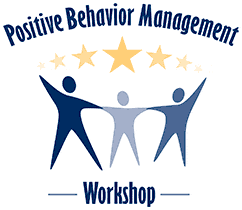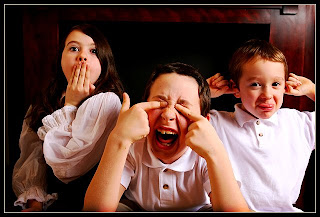 Acne
Acne
A pimple starts when the pores in the skin become clogged with a type of oil called sebum, which normally lubricates the skin and hair. Acne is common during puberty when hormones go into overdrive, causing the skin to overproduce sebum. Because many oil-producing glands are on the forehead, nose, and chin, this area — the T-zone — is where a person is most prone to pimples.
Here are some tips to help prevent breakouts and clear them up as fast as possible:
 @ Wash your face twice a day (no more) with warm water and a mild soap made for people with acne. Gently massage your face with circular motions. Don't scrub. Overwashing and scrubbing can cause skin to become irritated.
@ Wash your face twice a day (no more) with warm water and a mild soap made for people with acne. Gently massage your face with circular motions. Don't scrub. Overwashing and scrubbing can cause skin to become irritated.
@ Don't pop pimples. It's tempting, but here's why you shouldn't: Popping pimples can push infected material further into the skin, leading to more swelling and redness, and even scarring.
@ Avoid touching your face with your fingers or leaning your face on objects that collect sebum and skin residue like the telephone receiver.
@ If you wear glasses or sunglasses, make sure you clean them frequently to keep oil from clogging the pores around your eyes and nose.
@ If you get acne on your body, try not to wear tight clothes, which don't allow skin to breathe and may cause irritation. You also might want to stay away from scarves, headbands, and caps, which can collect dirt and oil, too.
@ Remove your makeup before you go to sleep. When buying makeup, make sure you choose brands that say "noncomedogenic" or "nonacnegenic" on the label.
@ Keep hair clean and out of your face to prevent additional dirt and oil from clogging your pores.
@ Protect your skin from the sun. It may seem like a tan masks acne, but it's only temporary.
If you're concerned about acne, talk to a dermatologist.
Sun and Skin We all know we need to protect our skin from the sun's harmful rays. Of course, it's impossible to avoid the sun — who wants to hide indoors when it feels so great to get outside and be active? And the sun's not all bad, anyway: Sunlight helps our bodies create vitamin D. So follow these tips when you're outdoors to help manage sun exposure:
We all know we need to protect our skin from the sun's harmful rays. Of course, it's impossible to avoid the sun — who wants to hide indoors when it feels so great to get outside and be active? And the sun's not all bad, anyway: Sunlight helps our bodies create vitamin D. So follow these tips when you're outdoors to help manage sun exposure:
@ Wear sunscreen with a sun protection factor (SPF) of at least 15, even if it's cloudy or you don't plan on spending a lot of time outdoors.
@ Choose a sunscreen that blocks both UVA and UVB rays. Look for the words "broad spectrum protection" or UVA protection in addition to the SPF of 15 or greater. @ The sun's rays are strongest between 10:00 AM and 4:00 PM, so make sure you reapply sunscreen frequently and take breaks indoors if you can. If your shadow is longer than you are tall, then it's a safer time to be in the sun (you should still wear sunscreen, though).
@ The sun's rays are strongest between 10:00 AM and 4:00 PM, so make sure you reapply sunscreen frequently and take breaks indoors if you can. If your shadow is longer than you are tall, then it's a safer time to be in the sun (you should still wear sunscreen, though).
@ Apply more sunscreen (with higher SPF) when you're around reflective surfaces like water, snow, or ice.
@ We all know that the sun can damage skin, but did you know it can contribute to eye problems, too? Protect your face and eyes with a hat and sunglasses that provide 100% UV protection.
@ Some medications, such as prescription acne medications or birth control pills, can increase your sensitivity to the sun, so if you're taking medication, increase your sun protection.
@ If you want the glow of a tan, try faking it with self-tanners or salon tanning treatments.
Cold Sores
Cold sores usually show up as tender "pimples" on the lips. Here are ways you can help prevent cold sores from making an appearance : @ Avoid getting cold sores in the first place by not sharing stuff like lip balm, toothbrushes, or drinks with other people who might have cold sores.
@ Avoid getting cold sores in the first place by not sharing stuff like lip balm, toothbrushes, or drinks with other people who might have cold sores.
@ People who have the virus know that cold sores can flare up from things like too much sun, stress, or being sick. Just one more reason to lather on that suntan lotion, eat well, exercise, and get plenty of sleep!
If you do have a cold sore, here are some tips for keeping yourself comfortable: @ Take acetaminophen or ibuprofen if the cold sores are painful.
@ Take acetaminophen or ibuprofen if the cold sores are painful.
@ Suck on ice pops or cubes to ease pain and keep cold sores cool.
@ Stay away from acidic foods (like oranges, tomatoes, and lemonade) and salty, spicy foods, which can cause irritation.
@ Don't pick at cold sores while you're waiting for them to go away. They may bleed or become infected with bacteria.
Eczema
Eczema is a condition that causes skin to become red, itchy, and dry. If you have eczema, you might notice that you are prone to getting itchy rashes — especially in places like where your elbows and knees bend or on your neck and face. The symptoms of eczema can vary from person to person. Though you can't cure eczema forever, you can take steps to prevent it from flaring:
 @ Stay away from things like harsh detergents, perfumed soaps, and heavily fragranced lotions that tend to irritate the skin and trigger eczema.
@ Stay away from things like harsh detergents, perfumed soaps, and heavily fragranced lotions that tend to irritate the skin and trigger eczema. @ If you wear makeup, look for brands that are free of dyes and fragrances that can aggravate eczema.
If you're having trouble managing your eczema, talk to a dermatologist, who can suggest ways to better control it.
 Warts are tiny skin infections caused by viruses of the human papilloma virus (HPV) family. There's no way to prevent warts from occurring.
Warts are tiny skin infections caused by viruses of the human papilloma virus (HPV) family. There's no way to prevent warts from occurring.If you find warts in your genital area, you should see your doctor, who can recommend the best treatment method for that sensitive area.

 Most schools are trying hard to upgrade their lunch programs and offer the best food they can. But not every school cafeteria provides appealing, healthy lunch choices. Educate yourself when it comes to what your cafeteria has to offer. For example, did you know chicken nuggets have more fat and calories than a plain burger?
Most schools are trying hard to upgrade their lunch programs and offer the best food they can. But not every school cafeteria provides appealing, healthy lunch choices. Educate yourself when it comes to what your cafeteria has to offer. For example, did you know chicken nuggets have more fat and calories than a plain burger?  Do you ever wait in the lunch line only to find when you get to the front that you don't like what they're serving? So you reach for pizza again. A healthy packed lunch lets you avoid the lunch line (and any temptations). Bringing your own lunch also lets you control exactly what goes into the food you eat.
Do you ever wait in the lunch line only to find when you get to the front that you don't like what they're serving? So you reach for pizza again. A healthy packed lunch lets you avoid the lunch line (and any temptations). Bringing your own lunch also lets you control exactly what goes into the food you eat.












 What if I told you I'm going to show you how to use praise effectively? I hear some of you saying but I already use praise! Yes but read on and you will be pleased you did. First I'm going to explain why praise is one of the most effective tools in raising happy,
What if I told you I'm going to show you how to use praise effectively? I hear some of you saying but I already use praise! Yes but read on and you will be pleased you did. First I'm going to explain why praise is one of the most effective tools in raising happy,  Praising your child is important because:
Praising your child is important because: Isn't praise manipulative? The purpose of praise is to increase positive behaviour with the child's knowledge. Everybody responds favourably to praise.
Isn't praise manipulative? The purpose of praise is to increase positive behaviour with the child's knowledge. Everybody responds favourably to praise..jpg)



 Reforms such as these may be proclaimed by a government, by interested groups, or by revolution. Reform means beneficial change, or sometimes, more specifically, reversion to a pure original state.
Reforms such as these may be proclaimed by a government, by interested groups, or by revolution. Reform means beneficial change, or sometimes, more specifically, reversion to a pure original state.






 Do you like to have a weekend lie-in or a nightcap before going to bed? These habits could actually be harming your sleep.
Do you like to have a weekend lie-in or a nightcap before going to bed? These habits could actually be harming your sleep.














